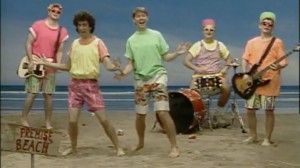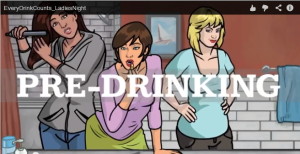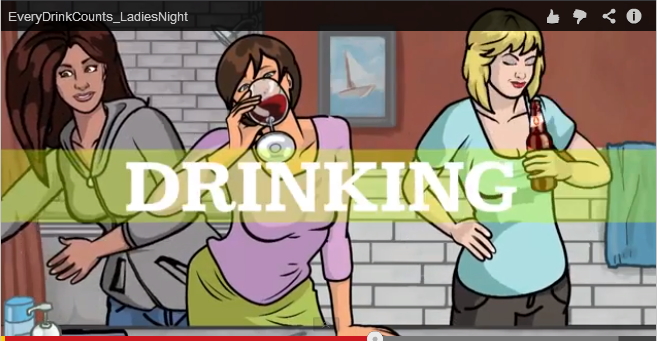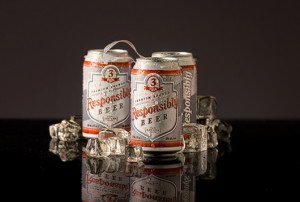Maybe it’s me. Maybe I nerd wrong. I just… I don’t nerd-rage over casting in movies the way the rest of the Internet seems to. But given that I refuse to buy into the notion of “true geeks,” the idea that being a geek is something that must be earned (see the ridiculous. hateful, “fake geek girls” outrage that I really wish would die in a fire very soon), I’m going to assume I am nerding just fine, and that this is an entirely valid thing to say:
I have no quarrel with Ben Affleck playing Batman.
I shall now share some thoughts that the Internet thinks I’m wrong about. Perhaps I can convince some of you that I am not.
1. I actually quite liked Man of Steel.
I saw Man of Steel opening weekend. I was a little worried that this was going to be another Green Lantern, which I found perfectly enjoyable, but only because I love all things Green Lantern enough that I could ignore flaws others could not. But not so this time. I thought Man of Steel was great. The people I was with enjoyed it as well, even Charlotte, who was there specifically to hate it in front of me. I then spent two months reading, hearing, and absorbing the criticisms people were lobbing at it, then this week, watched it again.
I still dig it.
Some mild spoilers will follow. Skip to point two if you haven’t seen it but wish to. Also call me, we should totally go watch it at the cheap theatre.
Henry Cavill is actually a really good Superman. He captures the inherent goodness, the “I just want to help” nature that Superman should have as well as the “Must keep myself a secret” turmoil that is the first act. Kevin Costner and Russell Crowe were great as his two fathers. I loved the new invention of Lois Lane knowing Clark Kent is Superman before he even is Superman. Lois was tough, clever as hell, and adorable (but I always find Amy Adams adorable, I am but a man). Michael Shannon made one of the better superhero movie villains in General Zod, a man born, raised, and trained with the sole purpose of defending his planet and his people at any cost, who will cross any line and commit any atrocity if it means a future for Krypton. Well, the parts of Krypton he likes.
Okay, yes, the civic destruction gets a little much in act three. But I disagree with branding the movie “too dark” because of it. Nor the final battle with Zod. Superman is forced to make a choice, forced to do something abhorrent to him in order to protect the world. And I found it an incredibly powerful moment; Zod, blind with hatred after having lost everything, his people, his world, his reason to exist; Superman, begging Zod to stop; Zod’s refusal; Superman’s anguish at what he must do. It was damn near Doctor Who powerful. And no, I will not accept that suddenly this is unacceptable because he’s Superman. If you didn’t complain about Iron Man racking up a higher body count than Freddy Krueger but throw a hissy fit about Superman killing one genocidal demi-god who’s made it clear he won’t stop until either he dies or every single human is dead? Then shut up.
Act three did lack that sense of Superman being a figure of inspiration, a saviour to the people. He didn’t swoop around saving people during the final battle. Well, he did save several soldiers from Faora in Smallville, even while said soldiers were occasionally shooting at him, people forget about that, but the only thing he did to save people in Metropolis was smash the world engine on the far side of the planet and end the massive destruction it was causing. Which, I might argue, was a) kind of important, and b) almost killed him, which he knew was a risk but still didn’t hesitate. And after that he was a little busy getting punched in his face by Zod.
But the infrastructure is there. Jor-El has told him that his purpose is to inspire, to be an example that the people of Earth will one day reach to catch up to. Cavill is playing him to be that figure. He reaches out to earn the trust of the military, a struggle he’s shown as winning through Christopher Meloni’s great performance as Colonel Hardy. The foundations are there, we’re through the origin, future installments can bring that sense of hope and inspiration that I admit this film lacked.
But if you’re going to say “He should have spent less time fighting and more time saving people,” I think you owe Superman Returns an apology. But that’s a whole other rant.
2. Ben Affleck could be a good Batman.
Ben Affleck actually can act. There. I said it. Watch The Town. Watch Argo. Those are great movies and he’s good in them. Ben Affleck had a bad run, made some bad movies (to court further controversy, I don’t count Jersey Girl among them, I just don’t), took a break, let the dust settle, and rebuilt his career with a series of excellent films. Then he gets cast as Batman and the internet starts pretending that never happened while throwing movies from ten years ago in his face. Okay. Let’s look at the arguments against.
1. “Daredevil was awful! Thus this will be awful!”
Um… okay. Yes, Daredevil had flaws. Many. But is it possible those had more to do with the script and director? My issues with Daredevil weren’t with Ben, they with the fact that the movie didn’t seem to actually get Daredevil. And some poor script decisions. But say you disagree. Say you think if Daniel Day-Lewis had been Daredevil that movie would have been Dark Knight good. (You can’t, can you? No you can’t. The idea is madness. But still.) Affleck has given much better performances since then. Why assume he’s going to pull a Daredevil or Gigli? Why would he risk everything he’s rebuilt by not bringing the A-game he demonstrated in Argo and The Town?
2. “George Clooney was an awful Batman and so Ben Affleck will be too!”
The point being, this is a similar casting decision to when they had George Clooney replace Val Kilmer for Batman and Robin, a film so infamously terrible it nearly killed the superhero movie genre. But come on. Come on. That movie was terrible from the ground up. The script was awful, the direction was a day-glo nightmare, that movie was doomed to be a spectacular failure on every level before George Clooney even showed up on set. You cannot blame Clooney for Batman and Robin. He couldn’t have been a good Batman in that train wreck. Nobody could have. Superman/Batman will not have this problem. Why? Because Zach Snyder is better at this than Joel Schumacher. If you disagree, I’ll refer you to my above arguments regarding Man of Steel and inform you that we are fighting. We are now in a fight.
I believe that Ben Affleck could do well in this movie, and I’d rather wait until the movie comes out to debate it further. Which, actually, brings me to my final point…
3. Can we give this nerd raging over casting a rest? Please?
Did I not just go through this with Doctor Who? Is the Internet not still rebuilding from exploding over Peter Capaldi being revealed as the new Doctor? I suffered through the waves of complaint that the 12th Doctor was still white, still male, and, horror of horrors, old. I mean, how dare they take the Doctor in a different direction that isn’t the different direction we wanted.
Actually my issues with the Capaldi backlash and where I think those issues come from would be a large diversion I’ll save for another day. For now, it just comes down to “Anyone who’s seen him act should know he could be an amazing Doctor, so can we just chill until actual episodes start airing?”
But we can’t. Nerds have to freak out over everything, including nearly every casting decision in a superhero movie. Michael Keaton, Val Kilmer, and Christian Bale weren’t exactly embraced when we heard they were playing Batman. People freaked right out over Heath Ledger playing the Joker, and they were as wrong to do so as it is possible to be. If you don’t think Heath Ledger’s Joker was incredible, then sorry but we can’t be friends. I kid, we can totally be friends, we just shouldn’t see movies together. The list goes on: Chris Evans as Captain America, Chris Pratt as Star Lord (though we’ll have to wait and see on that one), Idris Elba as Heimdall, Laurence Fishburne as Perry White, the song remains the same, if occasionally smacking of racism. And most of the time all that nerd rage is for nothing. Most of the time the actor exceeds our expectations.
Ben Affleck might not pull off the same triumph as Heath Ledger, but assuming he’ll be another George Clooney is depressingly pessimistic. There’s no need for that.
Look, the movie’s not out for two years. In the meantime we’ll have casting news for the new Star Wars cast, Ultron, villains for the third Amazing Spider-man movie, maybe Lex Luthor, and probably at least one new Doctor Who companion to freak out over. Or maybe just accept with cautious optimism.
I’m telling you, it’s just a better way to live. Keep calm, and watch Argo.




